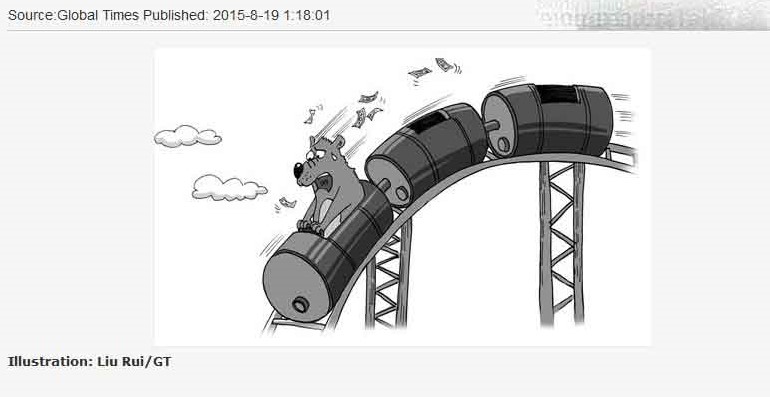Global oil prices have declined to around $47 a barrel. It was $110 in June 2014. Since then, prices have been on a free fall and it has reached below $50 a barrel. Prices of oil have been stable from the year 2010 till mid-2014.
Why have the prices fallen?
A very small part of the decrease in price can be attributed to the decline in global demand for oil. It happened due to three reasons:
- The slowdown in the world economy which led to a low demand for energy.
- Countries are shifting to non-conventional sources of energy due to environmental concerns.
- Increased efficiency in production has led to less usage of oil.
The important reason for the decline in the price of oil is that supply of oil increased tremendously over the last few years due to shale revolution in the US.
- The shale revolution happened due to the introduction of a new technology called ‘hydraulic fracturing/ fracking’. It allowed US and Canada to access reserves which were previously considered hard to extract. The production of oil in the US has doubled over the last 6 years and its import requirements have declined.
- The crisis in middle-eastern countries of Syria, Libya etc. did not affect oil supply.
Adding to the forces of demand and supply, the fact that OPEC did not cut production or supply led to further decline. OPEC or Organisation of the Petroleum Exporting Countries is a cartel that controls nearly 40% of the world’s oil market. The aim of OPEC is to coordinate the pricing and production decisions of its member countries.
Why did OPEC not cut supply?
OPEC did not cut prices because they chose to defend market share instead of oil price. They did not want to lose their market share.
The other possible could be that Saudi Arabia wanted production in the US’s shale oil and gas industry to shut down due to losses.
OPEC is largely influenced by Saudi Arabia. It has enough foreign excess reserves to withstand losses for a few years.
What is the impact of the oil price decline?
It would cause revenue losses to oil-exporting countries like Russia, Venezuela, Saudi Arabia, UAE, Kuwait, Iran, Iraq, Nigeria.
It would benefit all the other oil-importing countries.
What is its impact on India?
- India imports nearly 75% of its oil requirements. Fall in oil prices has lead to a decline in India’s import bill and thus reduced the current account deficit (CAD) of India. This allowed it to accumulate foreign exchange reserves.
- Oil is used as a raw material in many industries. Also, petrol and diesel is used in the transportation of most goods to the consumers. A decline in prices of oil has led to a low inflation rate in India.
- Subsidy burden has declined. Petroleum subsidy accounts for 1.37% of India’s GDP. It could assist India in achieving the fiscal deficit target of 4.1% of the GDP.
- Oil market companies like Bharat Petroleum Corporation Ltd (BPCL), Hindustan Petrol Corporation Ltd (HPCL), Indian Oil Corporation Ltd (IOCL) etc. have better margins.
- Aviation companies could benefit from the decline in the price of Aviation Turbine fuel.
There could be some adverse impact also:
- Earnings have decreased for companies which are into oil exploration like ONGC.
- FII inflows to India by oil-exporting countries could reduce as they won’t have surplus funds to invest.
In summary, oil prices decline is mostly a blessing for oil-importing countries like India.
The topic for this post was suggested by a reader on this page.
